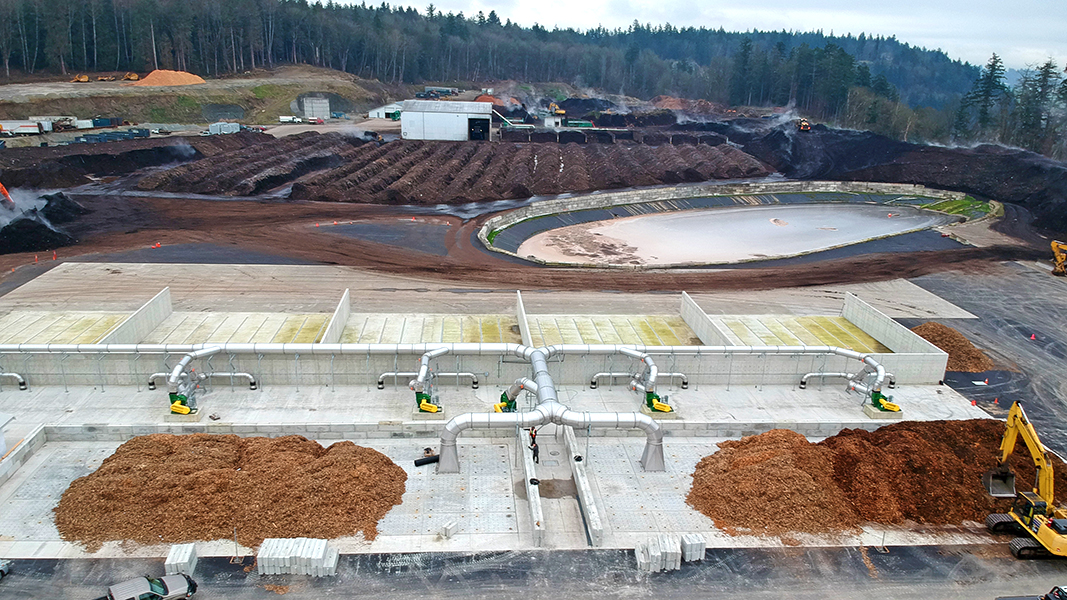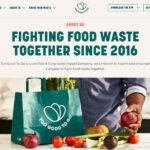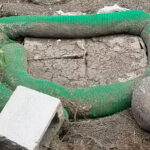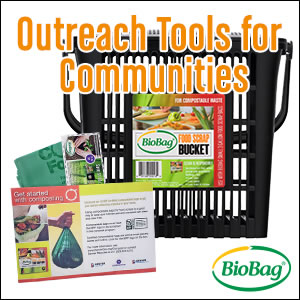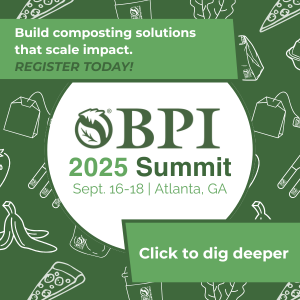Top: Lenz Enterprises in Stanwood (WA) is expanding its source separated organics composting facility. Image courtesy Baraka Poulin, Engineered Compost Systems
On Friday, March 25, 2022, Washington State Gov. Jay Inslee signed E2SHB 1799 into law, a bill to reduce food and yard waste in landfills in Washington. On March 3, the Washington Senate passed E2SHB 1799, with bipartisan support after being passed by the House on February 11. The new law puts Washington on the road towards increased food donation, composting, and anaerobic digestion. Washington State is now the ninth state in the U.S. with laws or regulations that require diversion of food waste from disposal, joining California, Connecticut, Maryland, Massachusetts, New Jersey, New York, Rhode Island and Vermont.
The law establishes a goal of 75% reduction in the amount of organic materials disposed in landfills by 2030, relative to 2015 levels, and a separate goal that at least 20% of the volume of edible food disposed of be recovered for human consumption by 2025, relative to 2015. It is similar to California’s SB 1383 Short-Lived Climate Pollutants Reduction Act in that it does not ban disposal of food and yard waste in the landfill but instead requires the state’s jurisdictions to offer collection services, and for businesses to arrange for organics collection.
“Washington is taking a big step forward in improving our management of organic materials, putting what used to be waste to productive use, and reducing methane emissions from landfills,” notes Representative Joe Fitzgibbon (D-Seattle), the bill’s prime sponsor. Adds Sen. Mona Das (D-Kent), Senate sponsor, “At this point, in 2022, we have the creativity and the technology to limit waste and build communities where no one goes hungry.” The law amends the state’s Good Samaritan Food Donation Act to make it easier for groceries, restaurants and food manufacturers to donate excess food to food rescue groups. The Washington State Department of Ecology will create a new Center for Sustainable Food Management to help match businesses and others to surplus food with entities that can deliver that food to residents in need, manage organic material flows, and track progress.
E2SHB 1799’s definition of organic materials includes manure, yard waste, food waste, food processing wastes, wood wastes, and garden waste. Jurisdictions are responsible for establishing organics collection services for residential and nonresidential customers. “Beginning January 1, 2027, each county or city that implements a local solid waste plan [and has a population over 25,000] must provide source separated organic solid waste collection services at least either biweekly or 26 weeks annually to all residents and to nonresidential customers that generate at least 0.25 cubic yards of organic materials per week, and must provide for organic materials management of collected organic materials,” states the law. “…. Cities and counties may charge and collect fees or rates for these services, consistent with existing authority to impose fees and rates for solid waste collection services. Any cities that newly begin implementing an independent solid waste plan after July 1, 2022, must meet organic material collection requirements.” Counties with a population of less than 25,000 are exempt from these requirements, as are census tracks that have less than 75 people per square mile. (Other exemptions are listed in E2SHB 1799.)
In jurisdictions or in areas of jurisdictions where there is available collection service and available capacity at solid waste facilities managing organic material, businesses must arrange for organics management services. Compliance will be phased in based on the volume or organic waste generated, e.g., businesses that generate at least 8 cubic yards (cy)/week of organics must begin compliance on Jan. 1, 2024. On Jan. 1, 2025, that quantity drops to at least 4 cy/week or organics, and in Jan. 1, 2026, to all business that generate at least 4 cy/week of solid waste.
Other provisions in the new law include:
- A new compost reimbursement program for Washington farmers for purchase of compost and compost spreading equipment.
- Requires that by January 1, 2023, cities and counties with populations greater than 25,000 adopt ordinances addressing procurement of compost.
- Amends Washington State’s existing Product Degradability Labeling Requirements standards to require compostable products that meet ASTM standards to use green, brown, or beige labeling, color striping, or other marks that help differentiate compostable items from non-compostable materials. Compostable food service products must be fully or partially tinted or colored green, brown or beige or have a minimum ¼ inch green, brown or beige stripe or band (first such requirement in the U.S.).
- Requires county and city development regulations to allow for the siting of organic materials management facilities in priority areas consistent with local solid waste plans and to the extent necessary to achieve state organic materials management goals.
Many companies and cities and counties already divert these organics, says Heather Trim, Executive Director of Zero Waste Washington. “This new law is a critical step to ensure that we divert more of the organic material to composting, anaerobic digestion, vermiculture and new innovative technologies. As an agricultural state, getting more high quality compost to our farmers is great for both soil health and carbon sequestration.”


